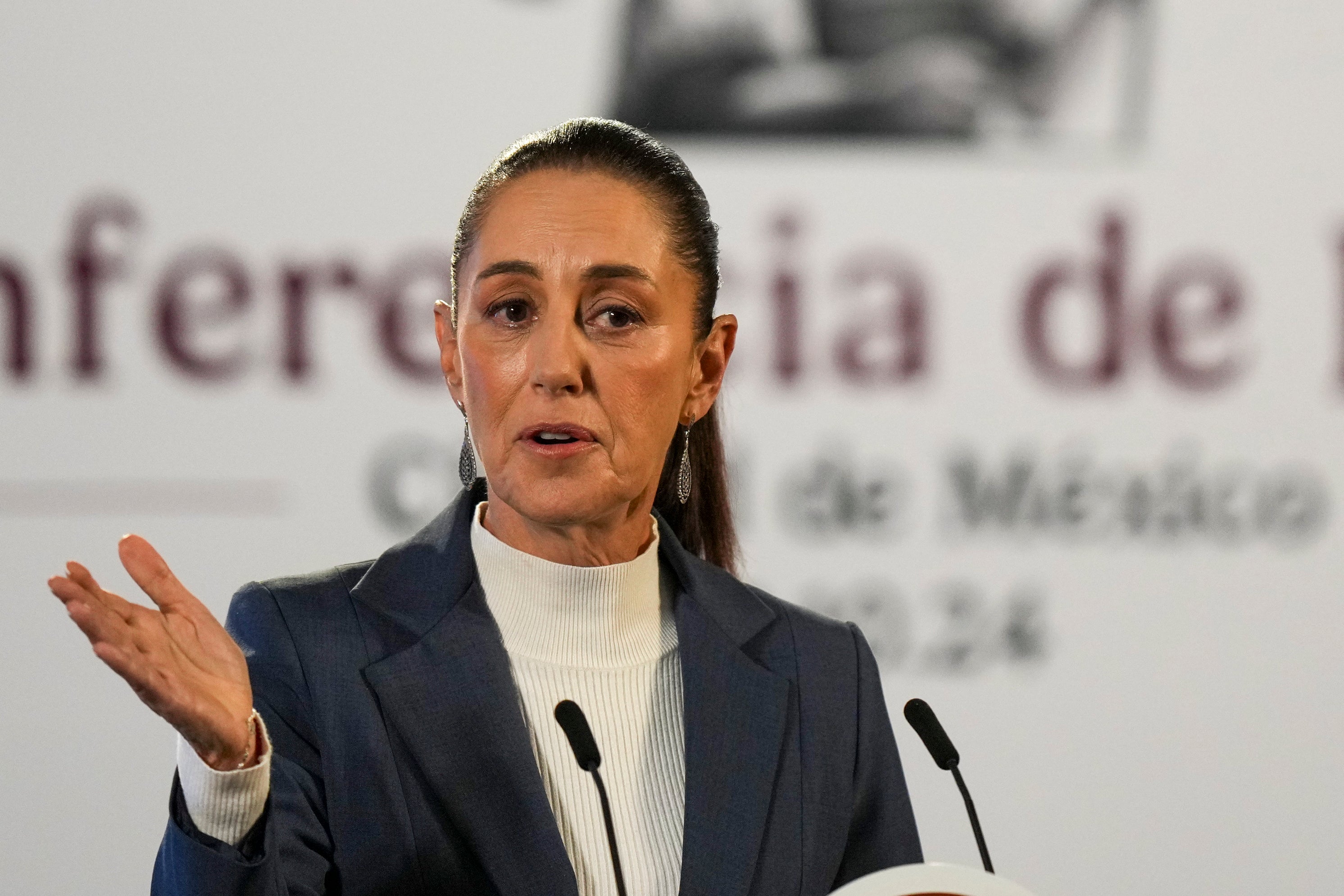Moody's downgrades Mexican government's outlook to 'negative' over weakening of judiciary and debt
Mexico's president has lashed out at Moody’s ratings service after it downgraded the Mexican government’s debt outlook to “negative.”

Your support helps us to tell the story
From reproductive rights to climate change to Big Tech, The Independent is on the ground when the story is developing. Whether it's investigating the financials of Elon Musk's pro-Trump PAC or producing our latest documentary, 'The A Word', which shines a light on the American women fighting for reproductive rights, we know how important it is to parse out the facts from the messaging.
At such a critical moment in US history, we need reporters on the ground. Your donation allows us to keep sending journalists to speak to both sides of the story.
The Independent is trusted by Americans across the entire political spectrum. And unlike many other quality news outlets, we choose not to lock Americans out of our reporting and analysis with paywalls. We believe quality journalism should be available to everyone, paid for by those who can afford it.
Your support makes all the difference.Mexico’s president lashed out Friday at Moody’s ratings service, after it downgraded the Mexican government’s debt outlook to “negative.”
Moody’s said it had downgraded the government's debt outlook from “stable” to “negative” because newly approved laws in Mexico could weaken the judiciary branch and checks and balances. It reaffirmed Mexico’s Baa2 overall credit rating, but said increased government debt represented a risk for Mexico.
It also mentioned the possibility that the government will have to transfer more money to shore up the highly indebted state-owned oil company, Pemex.
“Deteriorating debt affordability and further government spending rigidity make fiscal consolidation challenging, following this year’s widening in the government deficit,” Moody’s wrote, “a deviation from a longstanding track record of low deficits regardless of economic pressures.”
President Claudia Sheinbaum said that ratings agencies often have a “bias of origin” against the economic policies her party adopted under former President Andrés Manuel López Obrador, who took office on Dec. 1, 2018.
“Many times these ratings agencies are aimed at issuing evaluations starting from an economic model,” Sheinbaum said. “Starting in 2018, the economic model in our country changed. Many times these ratings have this bias of origin.”
Under López Obrador, who was Sheinbaum's political mentor, the government began transferring large amounts of money to the state-run oil company, started large building projects and implemented cash handout programs. That led to federal budget deficits of about 6% of Mexico's gross domestic product in 2024.
Sheinbaum ruled out enacting new taxes next year and said she would rely on increasing tax collection from existing sources. But in the 2025 federal budget submitted by her administration to Congress on Friday, it was clear that sizeable budget deficits would continue for some time.
Mexico's treasury department said it would aim to reduce the deficit to 3.2% of GDP in 2025, but it was unclear if it could achieve that: López Obrador left behind a lot of unfinished train and oil refinery projects, and Sheinbaum has expanded benefit programs for the elderly.
“The government will only gradually narrow the deficit in coming years,” Moody's wrote.
The 2025 budget says Mexico's outstanding federal debts would finish 2025 at around 51.4% of GDP. But that doesn't include a lot of government oil company and pensions debts. It also predicted the economy would grow by between 2 and 3% in 2025, something analysts say is optimistic, given that Mexico's GDP grew by only 1.5% in the third quarter of 2024.
The election of Donald Trump in the United States may also weigh on Mexico's economy, given his past threats to close the border and impose tariffs.
Moody's said Mexico has been benefitting from “nearshoring” investments by companies seeking to move production closer to the U.S. market.
But it noted “additional downside risks to investment dynamics could emerge ahead of the revision of United States-Mexico-Canada Agreement (USMCA) in 2026, particularly if modifications to the agreement’s rule of origins, labor specifications and other US trade policies towards Mexico changed in a way that durably limit the country’s exports.”
“Lower economic growth and, consequently, government revenue would undermine fiscal consolidation efforts,” it continued.
Perhaps most importantly, Sheinbaum has continued López Obrador's push to implement changes to the judiciary that will make all federal judges stand for election in 2025 and 2026.
The U.S. government and business groups worry that could weaken the independence of the courts, and make them vulnerable to political pressure. Critics say that could also allow drug cartels to fund judges' election campaigns and get their own candidates elected.
“The constitutional overhaul risks eroding checks and balances of the country’s judiciary system, with potential negative impact to Mexico’s economic and fiscal strength,” it continued, adding the changes “have the potential to materially alter the checks and balances and the business operating environment in the country.”
Based on those and other factors, the Mexican peso has dropped in value to about 20.40 to $1 in recent days.